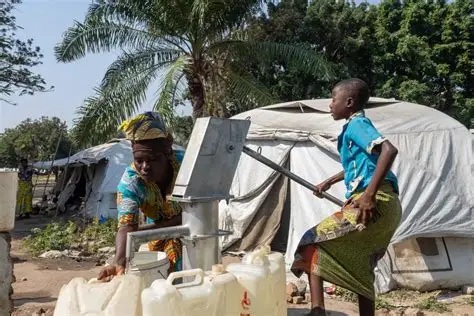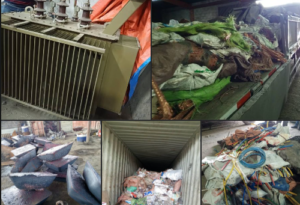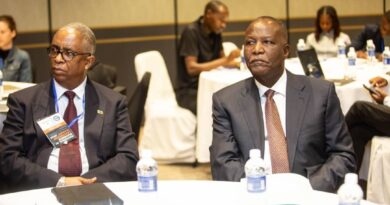From Emergency to Endurance: Why Investing in Permanent Water Systems Is the Smart Path to Peace
It is cheaper – and smarter – to invest in permanent water systems than to sustain expensive, temporary ones.
What if the millions poured into temporary water solutions for refugees could be turned into durable water systems? Think infrastructure that endures long after humanitarian projects end, benefiting the community at large.
That was the hot topic at the International Conference on Water, Peace and Security last month, where leaders, policymakers and development partners gathered in Nairobi.
Across East Africa, water scarcity, conflict and displacement are converging – testing the limits of humanitarian aid and national systems alike.
This converging crisis is particularly evident in the refugee-hosting region of the greater Horn of Africa, where the number of displaced people far exceeds those arriving in Europe. Over 5 million refugees and 17 million internally displaced persons (IDPs) continue to rely on temporary humanitarian systems for safe drinking water and sanitation. What were once emergency solutions have become semi-permanent lifelines – expensive to maintain, fragile in the face of climate shocks, and detached from government systems.
But a new model is showing that a different future is possible.
Amid sharp global aid cuts and the subsequent exit of some humanitarian partners, UNICEF and UNHCR, with support from the German Government through KfW Development Bank, are leading on the R-WASH initiative, a new approach that integrates refugee water systems into national, government-managed utilities.
And it is cheaper – and smarter – to invest in permanent water systems than to sustain expensive, temporary ones. In Gambella, Ethiopia, the R-WASH model has already reduced water delivery costs tenfold by shifting from trucked water to a sustainable, piped supply managed by local utilities. Upgrading water systems under the R-WASH model could cut service costs by more than 70%, according to new analysis from the refugee-hosting areas of Kebribeyah, Aw Barre and Shedder in Ethiopia, Dollow in Somalia, and Wad Sharifey in Sudan.
R-WASH goes beyond a cost-effective approach, though; it’s a climate-smart innovation designed to withstand environmental shocks and strengthen the resilience of water systems, as well as forge social cohesion between displaced and host communities, who often compete for water. By combining robust investments in durable water systems with capacity-building and governance support for local utilities and environmental safeguards, the initiative ensures that systems endure long after humanitarian projects end.
R-WASH empowers local utilities and communities to take ownership and safeguard valuable investments in robust water and sanitation systems. Over time, the plan is for refugees to become paying customers of public water utilities, not just aid beneficiaries, promoting shared prosperity and normalising service provision between refugees and host communities alike.
This is a model built on partnership. UNICEF and UNHCR, working together with the German government through KfW, Xylem, the African Development Bank, the Kingdom of the Netherlands, and local governments, are demonstrating what sustainable humanitarian–development collaboration looks like in practice.
The next step is to take the approach to scale. With the support of International Financial Institutions and other funds, we envisage a large-scale transition away from historically expensive, protracted humanitarian responses. The R-WASH experience offers a practical way to lessen the risk of such investments, anchoring them in local systems that work for everyone.
Sustainable water systems are not just a moral imperative – they are a peace and stability dividend. By investing in inclusive, resilient infrastructure, governments and partners can help refugees and host communities alike thrive where they are, easing the pressures that drive migration and conflict.
As government leaders, tech firms, researchers and donors convened in Nairobi, the message from East Africa was clear: peace begins where water flows sustainably.



